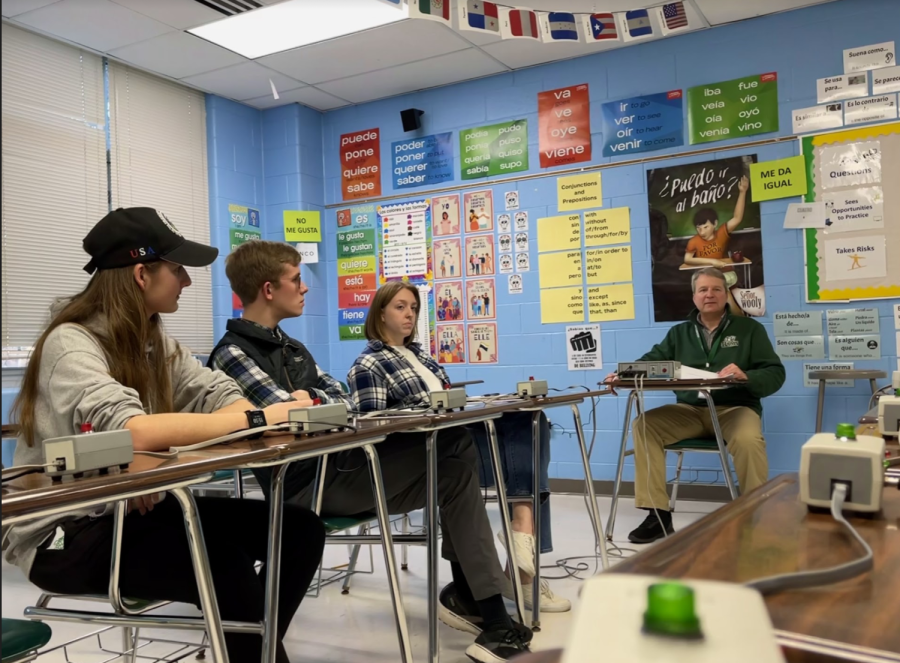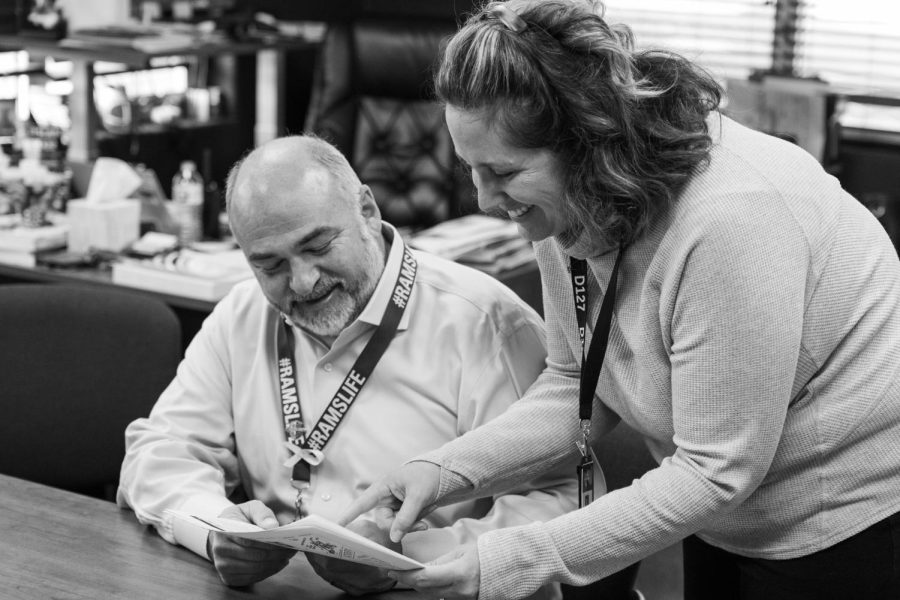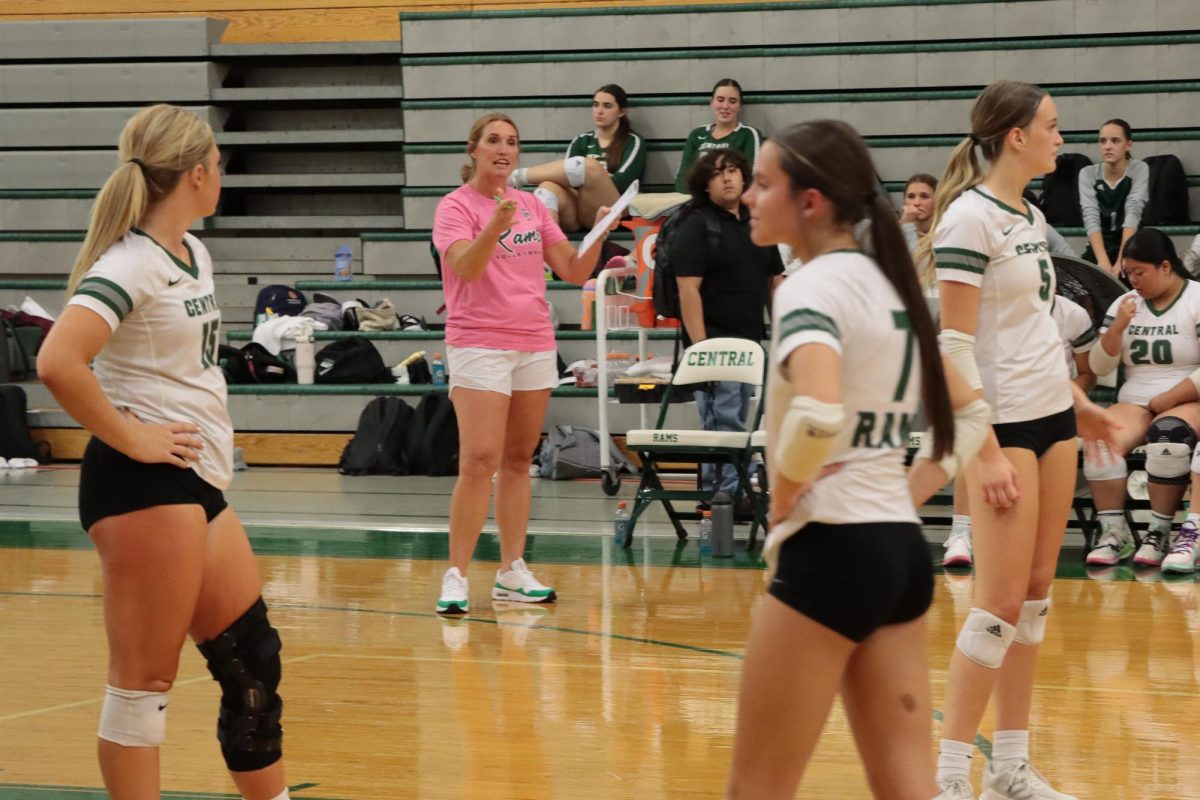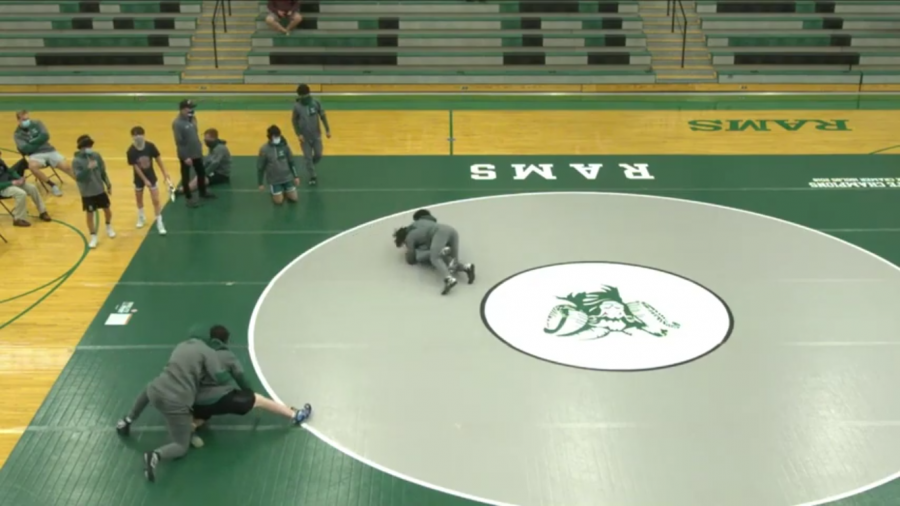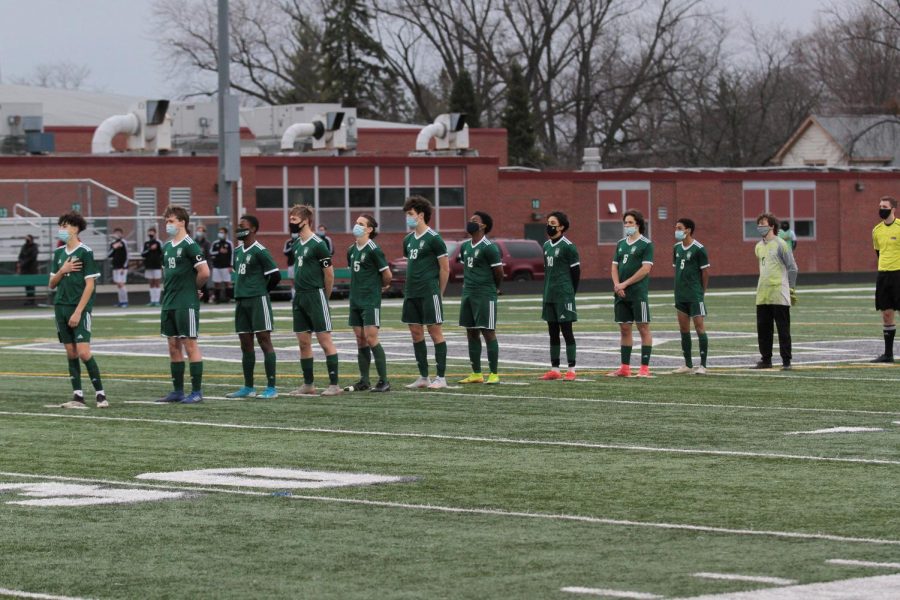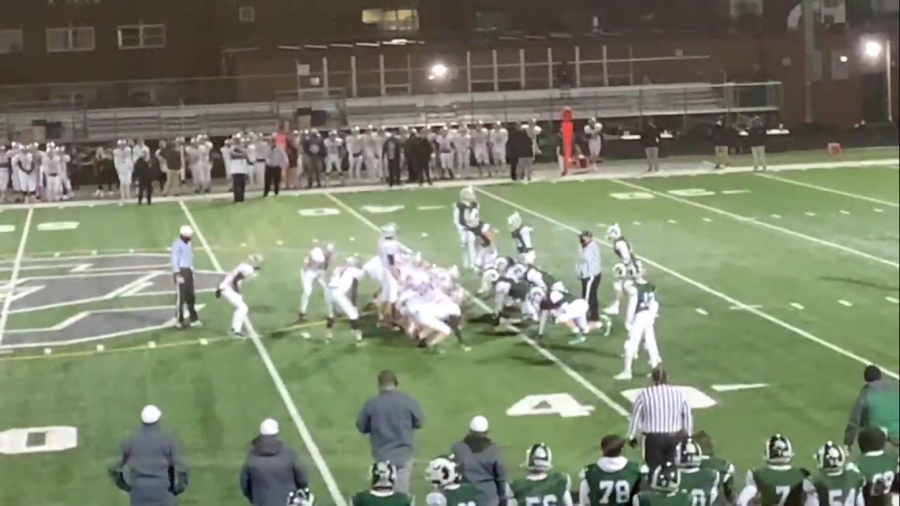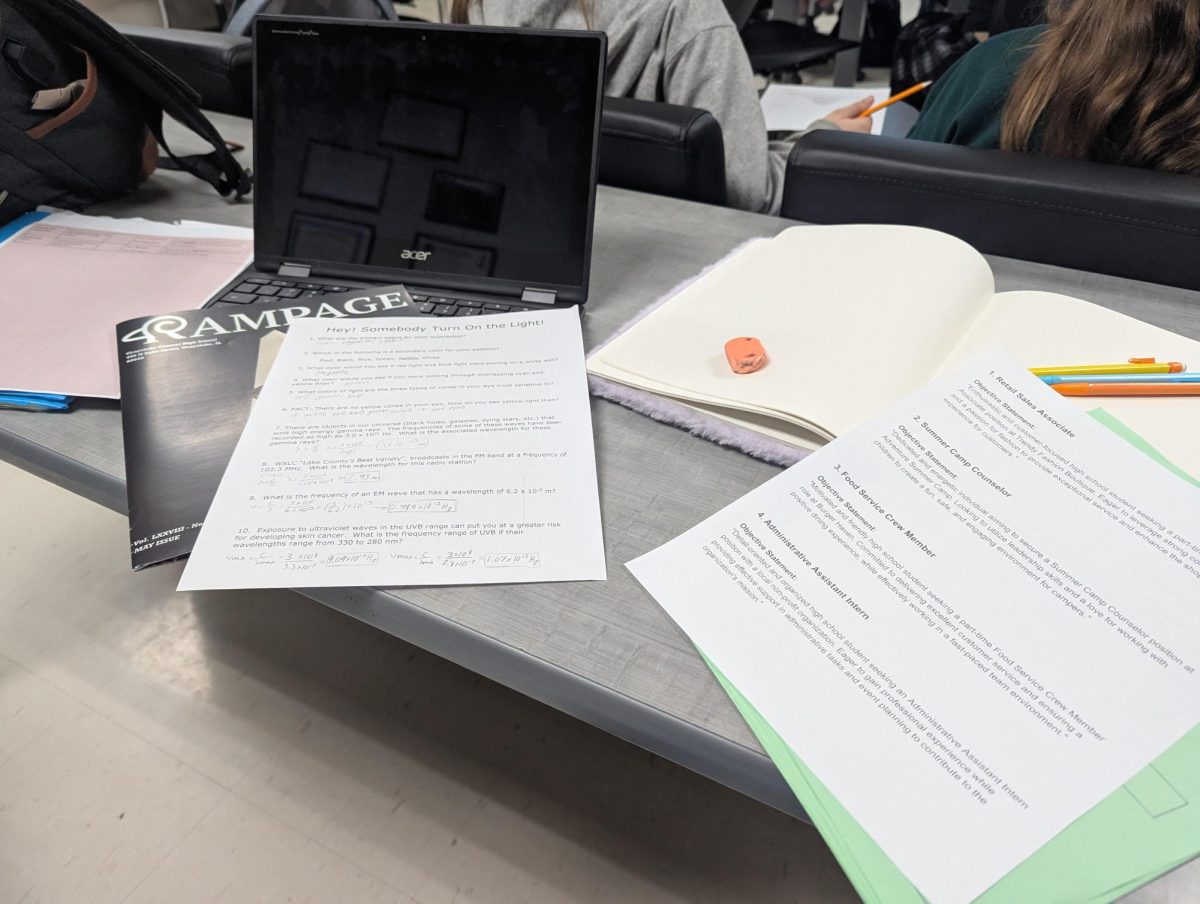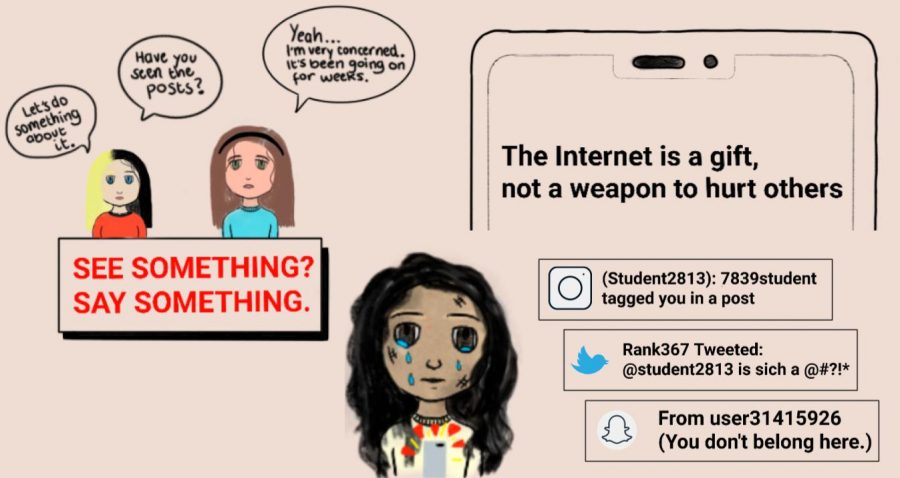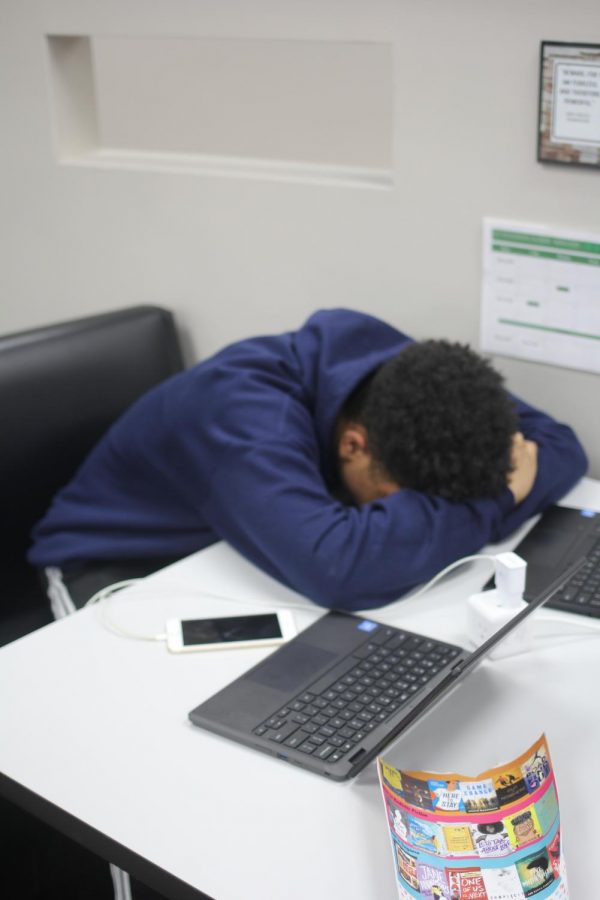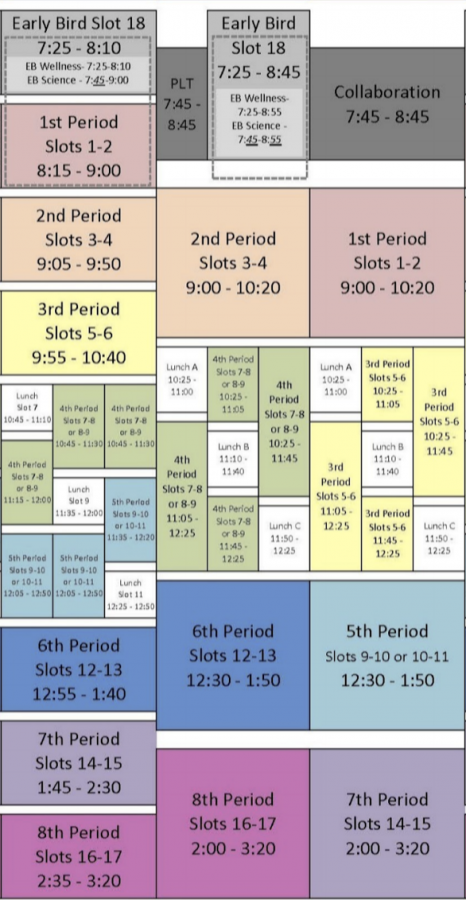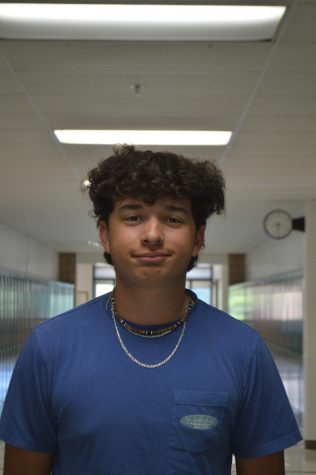Central Needs A Later Start Time
The school has a schedule that forces students to get up too early and get home simply too tired.
Senior Isaac Trawick, tired after a long day of school, takes a moment to relax.
March 11, 2020
Imagine this: It’s 10:00 in the evening, and you have a big test the next day. You had athletics and other extracurriculars until 9:00 in the evening, so you get home, already exhausted. You then get to studying. You’ve re-visited notes, completed study guides, re-done worksheets, re-taken every test you can, and you’re nervous as all get-out that your grade will suffer badly if you don’t do well on this test. You turn in for the night at 11:30 in the evening, tired and wanting tomorrow not to come. You stay up, nervous about logging into PowerSchool, seeing a bad grade, and seeing your GPA drop. Little do you know, however, your biggest enemy isn’t this test. It’s the time between now and that monotonous tone at 7:30 in the morning, indicating it’s time for another day of school. The school has a schedule that forces students to get up too early and get home simply too tired.
Currently, students across the country are calling for reforms in the way our schools are run. Everything from “We’re being taught irrelevant information” to “Schools are disregarding our mental health”. While some of these claims are quite far-fetched, one of them does have some weight to it: The fact that across the country schools are waking up students at an ungodly early hour to do something that requires one to be mentally sharp. Once students leave high school and assuming they pursue higher education, not all the students are getting up at 6:00 a.m., so it’s setting a bad precedent for upperclassmen on what to expect after their time in high school ends.
The school start time debate does have real weight to it. Multiple studies conducted have shown that students need to have at least 9.25 hours of sleep a night. If students are supposed to wake up at 6:00 a.m., this means they have to turn in at 8:45 p.m. and considering that many students are also athletes, that can keep us up late, along with sometimes a fair bit of homework. Overall, it’s unrealistic to expect us to get to bed so early.
Speaking from personal experience, by Thursday or Friday after getting home, taking a nap is a priority because by 3:20 p.m., 9 hours and 20 minutes passed since waking up. On weekends, especially Saturdays, sleeping in until about 10:00 or 11:00 in the morning is commonplace.
After looking at 20 Chicago area high schools, one sees that GCHS has the third earliest start time, only ten minutes later than Wauconda, and seven minutes later than Waukegan.
That puts us in the earliest 2% of schools with regard to start times.
This, in turn, will mean that students will have uneven sleep schedules, waking up early on Mondays, Tuesdays, Thursdays and Fridays, a little later on Wednesdays, and potentially quite late on weekends. Psychology teacher Heather O’Connor, however, explains that this is not good for the human body. “[People] should try to match [their] weekday, and weekend [sleep] schedules as much as possible,” O’Connor said. “[Teens’] wake time and sleep time actually shifts, so you are really not supposed to get tired as an adolescent until around 11:00 p.m., and you’re supposed to be getting about nine hours of sleep…If you look at what [the school is] doing, we’re actually asking you to give up quite a few hours of sleep because [we expect you to be on the same sleep] schedule… as adults,” O’Connor continued. But there might just be light at the end of this tunnel because the district administration has seen the issues with the 7:30-2:45 schedule and is working to fix its scheduling issues.
D127 formed a scheduling committee with the goal of finding a viable solution to the problem of these early school start times. Central’s Associate Principal of Curriculum and Instruction and member of the scheduling committee Barbara Georges explains, “We are in the process of working on [a later start time]…[the committee has] been doing site visits at other high schools around the area to explore options for new bell schedules, and many of those options we are looking at would include a later start time.”
A great example of a school that has made material changes with their bell schedule with the goal of making sure students get an optimal amount of sleep is our neighbors over at Libertyville High School. LHS, along with Vernon Hills High School, formerly started their day at 7:30 a.m.; however, they moved it up to 8:45 a.m. to better accommodate their students health.
Community High School District 128, the district that oversees Libertyville and Vernon Hills High Schools, started out by forming a task force comprised of 35 faculty members from throughout the district with the goal of finding a viable solution to their early start times. After conducting extensive research, citing studies from the American Academy of Pediatrics and CDC, they changed their school day from 7:30-2:50, to 8:45-3:25, all in an aim to improve students’ lives.
A 2017 report by the task force to the D128 Board of Education states, “The [task force] members recommend further discussion of the factors that impact student schedules and sleep times… Teachers, coaches, [and] sponsors should take [the] entire workload [of students] into consideration when setting expectations for students.”
Overall, it’s nice to see that D127 is looking at innovative school districts such as Glenbrook, New Trier and Lake Forest, and taking their methodologies to heart for deciding a potential bell schedule change.











